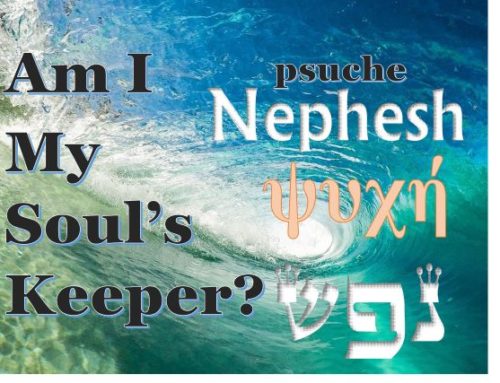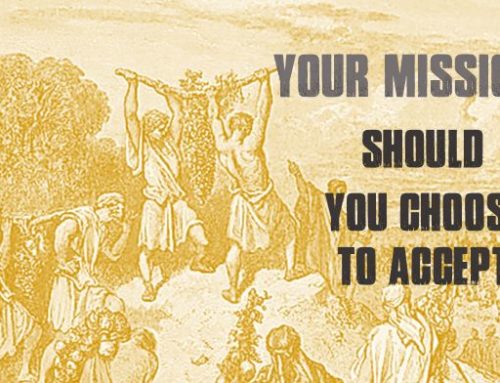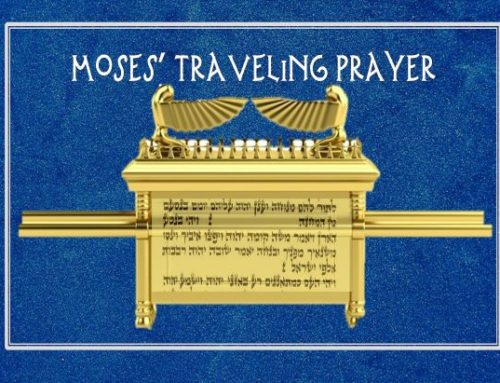Torah Portion, Acharei Mot-Kedoshim, Leviticus 16.1-20.27, Haftarah, Ezekiel 22. 1-16, Amos 9.7-15
“Now the Lord spoke to Moses after the death of the two sons of Aaron…” Leviticus 16.1 NKJV
Two men stood at the back of the Synagogue talking while others took their places for worship. Their conversations continued despite glances. This scenario was not uncommon among some Holocaust survivors. Loss, unhealed wounds, and unanswered questions were a barrier for many to connect to their faith. It is significant that the Torah portion, Acharei Mot (after the death) should follow Israel’s observance of Holocaust Memorial Day. Aaron’s loss of his two sons, Nadav and Abihu, suddenly in an unimaginable scenario, could have destroyed his faith. Yet, despite pained questioning, he made his way back into the presence of his Creator.
I am not equating Aaron’s loss to the Holocaust, but Aaron’s journey speaks to spiritually wounded individuals. His healing did not come through self-help. He discovered God’s prescriptive way back, and he walked its restrictive yet redemptive path.
For a few moments I want to speak to those who have questioned their faith in God after loss of a loved one or the fall of a leader. The words in our Torah Portion, “after the death” reveals that this should not be the end of our faith journey. Yes, these were priests. They were also Aaron’s sons. His emotions were exactly what you would expect, yet, like Job of old, he resolved to be faithful. We are seeing a spiritual generation in crisis. Some are falling into unbelief while others are pressing closer to God. Why are so many questioning their faith? Some are spiritually hanging out at the back, as one coming in from the cold yet seeking the least amount of warmth. In the news we increasingly read about “one- time believers” declaring they are no longer followers of Yeshua.
We are witnessing a generation which has so embraced “cancel culture” until they are now attempting to cancel God. Somewhere amid unresolved hurt a bitterness has taken root. King David briefly faced similar emotions after the death of Uzzah (II Sam. 6.8) Any one of us can find ourselves there, but our loving Creator does not want us to remain there. What does Aaron’s experience teach us about God’s prescriptive journey for man back to His presence?
I. The Prescriptive Way
“Tell your brother Aaron that he is not to come whenever he chooses into the Most Holy Place behind the curtain in front of the atonement cover on the ark, or else he will die. For I will appear in the cloud over the atonement cover.” Leviticus 16.2 NKJV
First, we see God speaking to Aaron through Moses. The verse itself may be glimpse into what happened to Nadab and Abihu. Familiarity had set in for the two young priests. Callously, they approached God, treating the holy as ordinary. The judgement upon them was quick. Those in ministry can lose their ability to distinguish the two. Children who grow up in ministry families have an even greater burden. They often handle the sacred without being truly born again.
Through Moses, the Lord revealed to Aaron the prescription for relationship. It calls for true transformation. It demands a covering for sin.
“This is how Aaron is to enter the Most Holy Place: He must first bring a young bull for a sin offering and a ram for a burnt offering. He is to put on the sacred linen tunic, with linen undergarments next to his body; he is to tie the linen sash around him and put on the linen turban. These are sacred garments; so he must bathe himself with water before he puts them on.” Lev. 16.3-4 NKJV
Did Messiah come to remove these prescriptive elements? Not at all. We still come through the atoning blood. Not by the blood of bulls and goats however, but by a spotless lamb – Messiah Himself. His blood covers, cleanses, and consecrates us. There is both a cleansing and a clothing of righteousness which comes through the born-again experience. We must walk out our obedience to God daily. This is especially true for those who approach God, whether Nadab and Abihu, a Christian minister, counselor, or the secretary handling the finances.
“’Among those who approach me I will be proved holy; in the sight of all the people I will be honored.’” Leviticus 10.3 NIV
So, the first step is to examine ourselves to see if we are truly in the faith. I fear that many who have announced they no longer believe were never truly saved. And that brings us to the restrictive way.
II. The Restrictive Way
“Enter by the narrow gate; for wide is the gate and broad is the way that leads to destruction, and there are many who go in by it.” Matthew 7.13 NKJV
Nadab and Abihu lost their lives because they offered strange fire on the altar. There is a hint in Scripture that they may have done so while drunk. (Lev. 10.8) The book of Leviticus also gives us a clue regarding their approach. In that time, entering the most holy presence was restricted to one day of the year. The Lord warned Aaron not to approach the holy of holies at the time of his choosing and the manner of his choosing.
In some sense we speak too much about the mercy of God and not enough about the fear of God. Years ago, I was invited to a Bible study. A regular showed up to the meeting, Vincent Furnier, one of the most famous rock musicians of the 70s and 80s. He sat in the group as a man transformed by the presence of God. You may know him by his stage name, Alice Cooper. What drew this rocker of darkness, a prodigal son, to give his life to God? In a television interview he revealed that initially it was the fear of God. One day he would draw his last breath on this earth and must give an account, perhaps to be separated from God’s presence. He went on to explain that he later came to the revelation of the love and mercy of God, but that must be coupled with the fear of God.
Can we truly live contrary to God’s restrictive word and expect to be accepted? Yeshua said His way was narrow. If someone tells you there are many ways to get to God, if they invite you to spiritually part from this narrow path, beware, they are leading you on the journey of Nadab and Abihu. But now I want to focus on the redemptive path.
III. The Redemptive Way
“Jesus said to him, “I am the way, the truth, and the life. No one comes to the Father except through Me.” John 14.6 NKJV
Early followers of Yeshua were called people of “The Way”. (Acts 9.2) Relationship is a lifestyle. It is a walk. The speed, the path, and the destination define us as people on a journey. And it is a redemptive path.
The Lord did not reveal to Aaron a journey of sinless perfection, but of redemptive relation. Aaron was required to have the blood of atonement applied to his life precisely because he was not perfect. He had to wash and be clothed in the right garments. Yeshua came to save sinners, but He does not leave us in that condition. Isaiah the prophet, long before Yeshua, wrote of our redemption But he did not speak of the need for an animal sacrifice; He spoke of a man whom God would cause to suffer in our place.
“Surely He has borne our griefs And carried our sorrows; Yet we esteemed Him stricken, Smitten by God, and afflicted. But He was wounded for our transgressions, He was bruised for our iniquities; The chastisement for our peace was upon Him, And by His stripes we are healed. All we like sheep have gone astray; We have turned, every one, to his own way; And the Lord has laid on Him the iniquity of us all.” Isaiah 53.4-6 NKJV
Some seven-hundred years before Yeshua, Isaiah called Israel to walk the redemptive path of Israel’s “suffering servant”. He bids us to follow Him, to witness His death; there we would find forgiveness, and then follow Him in His resurrection where we will enter the hope of eternal life.
Conclusion
I wonder if there is someone reading this today, spiritually milling around the back of God’s sanctuary. You may appear spiritually irreverent, enduring the glances of others who wonder what is wrong. You are hurting, hoping God will notice. You’re wounded, but not sure how to find healing. It may be hard to hear, but God is speaking to you today. Maybe you are even unable to hear His voice for yourself clearly. Perhaps that is why God spoke to Moses to speak to Aaron. Aaron was raw, but God was waiting. There is a prescriptive way to come to God. The world offers spirituality, but that leads to death. Isaiah prophesied healing, forgiveness, and the binding for our wounds through the “suffering servant” – Yeshua. Yes, it is a restrictive path, but it is your path of redemption. I invite you to call upon Him today.
Shavua Tov from Zion




